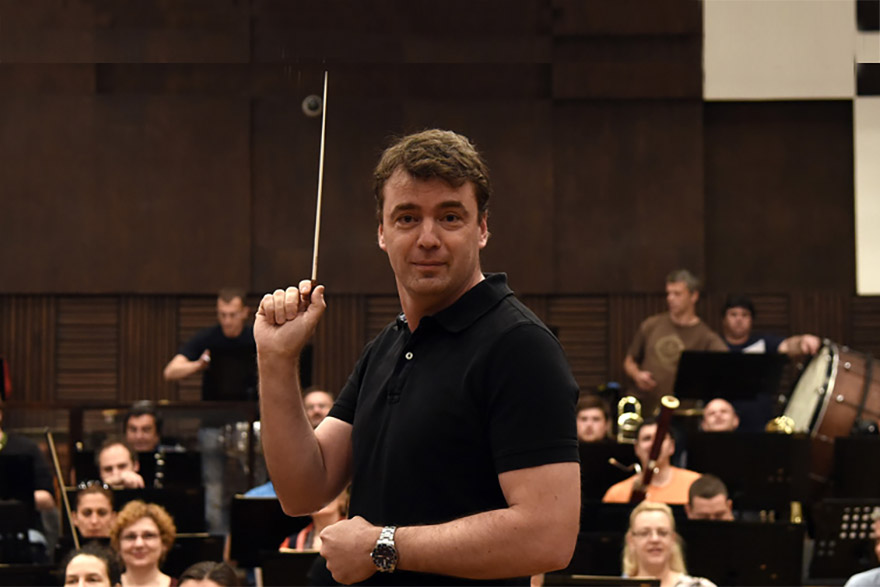Standing in front of more than 100 musicians of a wonderful orchestra like the Belgrade Philharmonic, conducting from memory without a score, looking around into the eyes of all musicians, breathing together with them, climbing together with huge “crescendos” (meaning the orchestra is getting increasingly louder) and crossing millions and millions of colours in sound and different emotions – this is how I try to use words to describe my obsession with my job
To describe my personal accomplishments here in this CorD magazine comment is also a very interesting challenge for me personally. That’s because I’m a musician, a conductor, and that means that my biggest triumph is a concert in which the orchestra and I progress together along the path of the composer. We have to follow his genius and his way of composing, which is printed in the score, just as we would follow footsteps.
That may not sound creative, but we are not slaves to the composer. Everybody who ever had a real experience with classical music on stage knows what I’m talking about. A good performance of a huge symphony like Mahler’s 2nd Symphony “Resurrection” (which we performed in Belgrade in June 2019) or Bruckner’s tremendous 5th symphony (which we performed in Belgrade in December 2019) always marks an unforgettable memory in my heart, in my soul.
Comparing that to other businesses, there is no economic, physical, technical or calculable result. Every note is heard for just a single moment during a concert. Even a recording on a CD cannot preserve the broad and wide area of emotions elicited by conducting such a concert. Standing in front of more than 100 musicians of a wonderful orchestra like the Belgrade Philharmonic, conducting from memory without a score, looking around into the eyes of all musicians, breathing together with them, climbing together with huge “crescendos” (meaning the orchestra is getting increasingly louder) and crossing millions and millions of colours in sound and different emotions – this is how I try to use words to describe my obsession with my job. My motto has always been “music starts where words end”. And because of that, it is quite funny for me to write an article about myself here in this magazine.
I have worked hard on myself in order to earn this privileged position in which I lead important orchestras all over the world. A good conductor is not only a musician but rather needs many more skills. I would like to list some of them here: must-haves include psychological sensitivity, managerial qualities, strong energy as a leader, an ability to learn quickly, an excellent ear, proficiency in playing at least one instrument at a professional level, a memory for all historical facts, circumstances of composing and so on for the particular piece you rehearse and, last but not least, an optimistic mind – especially now during the Covid-19 crisis.
Immediately after completing my studies, I started working at the Hamburg State Opera House as an assistant to the music director, without any practical experience of German theatres. I had to jump into cold water. There were many things I’d never done before, like conducting stage music in performances without any rehearsal, following many singers in auditions prima-vista at a piano, taking over rehearsals in a very short period and learning, learning and learning scores like a maniac. Of course, I experienced both victories and losses. Between the ages of 28 and 38, there were many nights during which I didn’t sleep for more than four hours.
As the saying goes in Germany: “Ohne Fleiß kein Preis” – “No pain, no gain”. I believe in that. As of about 20 years ago to this day, I really have been a freak with time. I deal with and calculate time as other people do with money. I prepare pretty full days very precisely in minutes and fight for time frames to learn and dive into music. I’m sure there are colleagues smiling about that statement. However, I think that good management for myself also gives me the opportunity to step beyond the business of classical music and just be a normal person, a father, a husband and a private person.
